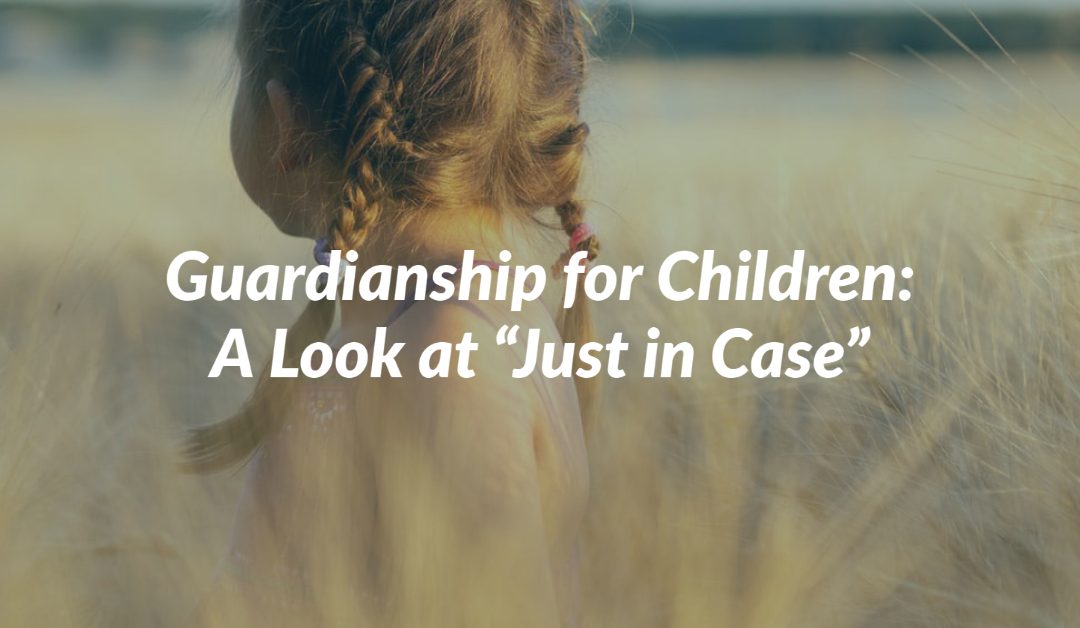We don’t want to think that we might not be the ones to raise our children. From the time their tiny faces pop into view, we cannot imagine them living life without us. However, sometimes healthy parents die unexpectedly and leave young helpless children behind.
If the unexpected happens and we are not here to help them grieve and urge them forward in life, who will? If we don’t make a plan for them, who will?
Grieving Kids at Risk
A Pitt Department of Psychiatry study found that “kids who have lost a parent are more than twice as likely than non-bereaved kids to show impairments in functioning at school and at home, even 7 years later. Read more at Pediatric Grief Study. With this kind of grief to work through at the loss of parents, children are at their most vulnerable with the loss of parents. They need someone to depend on to nurture them and bring them through.
Adam Hopler and Deborah Cousins of the Durham Social Services discuss in our latest webinar replay how to be prepared for the unexpected. They stress the importance of making a plan for your children’s guardianship just in case the worst happens. Deborah also shares her experience in working with recruiting families and with placing children in foster care homes.
If the worst happens and you and your spouse pass away without a will, the state will be left to make a decision about where your children will be placed. If multiple people are contesting against each other for the children, the children could be placed into foster care until a decision is made.
The Foster System
The foster system depends on families who have room in their hearts and lives for the life of a child who needs love. This system was implemented to help children who have no one to care for them or whose parents are incapacitated by drugs or alcohol, incarcerated, or debilitated by severe disease or terminal illness. The foster system is often overloaded with children who need a chance to grow up loved and cared for.
Your Children Can Avoid Foster Care
You have the opportunity to make a plan for your children so that they are not placed in a home with strangers, struggling to know who cares about them as they face overwhelming grief. If you make a plan, there is no need for the state to step in and be involved in choosing a guardian for your children.
Name a Guardian
One of the ways to prepare is to speak with your attorney about what types of plans should be in place for your family. It is important to name a guardian in your will. This is a person who will take care of your children. You can also name a fiduciary to take care of your estate and mete out money for the children’s needs.
Often, with young parents who do not have many assets, only a guardian must be named. The guardian is then responsible for the assets while also becoming responsible for the children. If you have more assets or are concerned that a guardian is not suitable to manage the finances also, you can name both a fiduciary and a guardian for your children. A knowledgeable attorney can help you make the best decisions for your unique family situation.
Trusts and Fiduciaries
An attorney can also help you take a look at your options regarding the passing of money on to children as an inheritance. Certain trusts will help your children pay less taxes when they reach the age of majority in NC (18 years old). If you do not want them to inherit the entire estate at age 18, a trust is a wise choice that allows you to choose a trustee or a board of trustees to mete out funds to your child as needed or as you instruct in the legal language of the trust.
Considerations in Naming a Guardian or a Fiduciary:
- Religion
- Number of Kids in Their Family
- Their Lifestyle
- Where they live: Would your children need to move?
- Likelihood of Major Changes in their life
- Financial Stability
- Handling of Life Stressors
- Addiction to Drugs or Alcohol
- Difficulty Managing Anger
A will is a necessary item to draw up when we become parents. Becoming a parent means that it is not about us anymore. We cannot let our fear of having to face death prevent us from keeping our children safe and happy. We must face planning the future for our children whether or not we will be here for them. It is time to write a will and choose a guardian for your children.
Seeking out a knowledgeable attorney can help you make good decisions about guardianship for your children. Once you have written up a will and named a guardian and/or fiduciary, you can easily change that designation later if needed without drawing up a new will. An attorney can also help you work out other estate planning matters such as how to handle your assets. It is good to seek out someone who has worked in estate planning and family law so that your decisions are based in good advice from a tax and law perspective for your situation and the state you live in.
Check out the webinar replay for more information on planning for the unexpected.
Guardianship for Children: A Look at “Just in Case”

